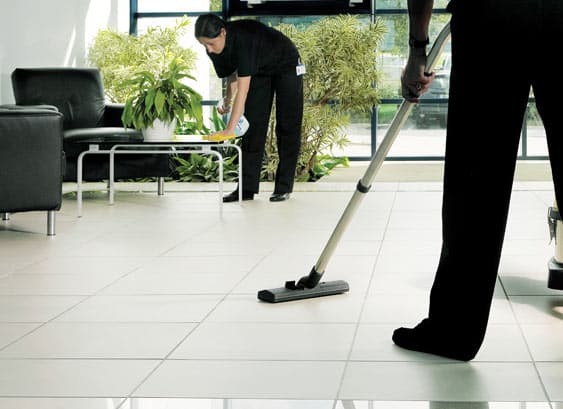(This could be considered the second part of a discussion I started in yesterday’s post.)
Miya Tokumitsu’s Slate article In the Name of Love has this as its subtitle: “Elites embrace the ‘do what you love’ mantra. But it devalues work and hurts workers.” It’s a sobering article that really rinses out the “do what you love” slogan in ice cold water. It made me realize that “do what you love” (or “DWYL” as Tokumitsu abbreviates it) does a disservice both to people who dislike their jobs and to those who are doing what they love.
Tokumitsu’s first point is that making “do what you love” part of our work gospel leaves out all the people who have no choice but to clean hotel rooms, drive a cab, pick fruit, etc. Earning a living doing what you enjoy is a lovely idea, but it’s unrealistic and elitist. Only those with the advantages of class and education (and all the privileges entwined in those broad categories) get to choose a career based on their preferences. You don’t have room to consider “what do I want to do?” when the only options open to you are things you’d never choose to do on your day off.
A friend recently commented on how unpleasant an employee acted during his last trip to a public library. She wasn’t exactly rude to him, but she gave every indication that she didn’t want to help him or even be at work. My friend felt irritated and baffled by this behavior. If you don’t like your job, he figured, why stay there? His was the response of someone who has always had a choice about careers and who believes that if you don’t love your job, you’re not living right. I understand his view. In the past, I’ve shared it.
But if you consider how few resources most people have (even most white Americans still don’t graduate from college), it’s not surprising how many unhappy workers there are. And they really don’t need us putting this “do what you love” attitude on them. The DWYL idea can also hamper new college graduates led to believe that they’re always supposed to enjoy everything about their job. Overlooking entry level jobs because you’re following your bliss can result in long-term unemployment and a lot of disillusionment.
Tokumitsu’s second major point is that believing we should love our work so much that we’d do it even if we weren’t being paid for it, opens the door to — well, doing work that we aren’t being paid for. She mentions academia, non-profits, fashion and media as fields where people are particularly vulnerable to exploitation. In such “lovable” professions, employees often answer emails all weekend long, work long hours beyond their salaries and manage an unreasonable workload.
When I worked at Rotary International headquarters in Evanston, so many jobs were eliminated that some of my co-workers ended up doing the work of two or more people, but we were changing the world and believed passionately in the end results, so we did it. Non-profit organizations like Rotary International are full of people willing to take poorly paid positions because they want to feel good about what they spend their days doing. Tokumitsu writes, “Nothing makes exploitation go down easier than convincing workers that they are doing what they love.”
“Do what you love” sounds like the key to happiness, but devalues the work of people who dislike and who like their jobs. While we respect those who are doing work they passionately love, we also suspect that those people don’t deserve or need to be fully paid for that work. How many of us have frowned at the fees of a photographer, designer, musician or other artist who we didn’t think should earn so much for doing something that’s so much fun? That DWYL stuff is insidious.
No matter how much someone enjoys what they do, call it work. Pay for it as work. That’s what it is. Tokumitsu also mentions this self-defeating idea: “If you do do what you love, you’ll never work a day in your life.” This statement treats “work” as a bad word. It’s as if we’ve become fixated on joining the leisure class at a time when fewer and fewer of us will ever reach it. She writes:
…it’s critical to ask, “Who, exactly, benefits from making work feel like nonwork?” “Why should workers feel as if they aren’t working when they are?” In masking the very exploitative mechanisms of labor that it fuels, DWYL is, in fact, the most perfect ideological tool of capitalism. If we acknowledged all of our work as work, we could set appropriate limits for it, demanding fair compensation and humane schedules that allow for family and leisure time.
This is the core of the destructiveness of DWYL: it erases the boundaries between work and non-work, leaving us vulnerable to working non-stop while getting paid for only part of that labor.
Before they retired, my father worked for the federal government and my mother was a public school teacher. They liked their jobs well enough, but their passion lay elsewhere. They were extremely active in the Mexican American Political Association (MAPA) of Contra Costa County, which lies to the east of San Francisco. Their MAPA chapter supported political campaigns, took on police commissions, faced down school boards and fought racism against Latinos in whatever way it occurred.
To the end of her life, my mother helped organize food and clothing drives at her church and personally helped out struggling families by digging into her own wallet. That was where their hearts were. My parents modeled for me the dignity of doing what you have to do to earn the rent, and doing what you love after hours. And that is how I’m proud to live my life.
Share this post:
on Facebook
on LinkedIn





0 Comments